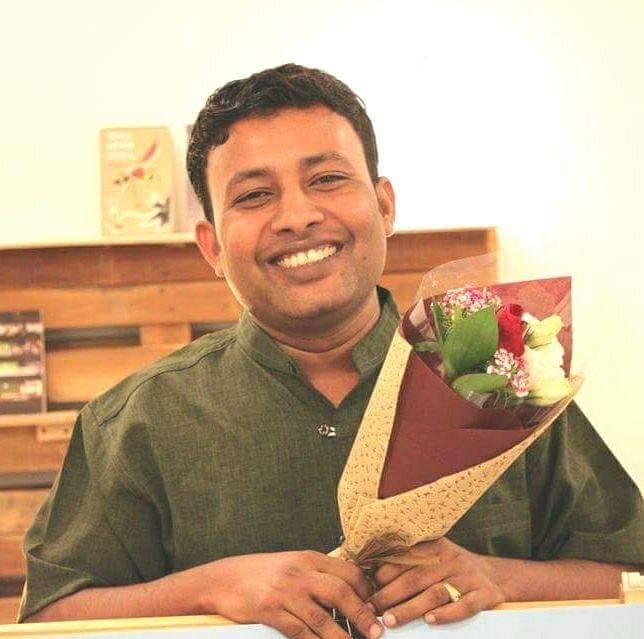In an open letter on Wednesday (Jun 22), migrant worker Zakir Hossain Khokan, 43, wrote that he was deported from Singapore “with no clear reason and plenty of confusion”.
Hossain – a prize-winning poet who is also a former speaker at TEDx Singapore, community organizer, writer, freelance journalist, editor, and photographer – outlined in his Facebook post that after working in and contributing to Singapore for 19 years, he received a notice from his company’s Human Resource (HR) department that his work permit had expired and could not be renewed. The system reflected that he had “an adverse record with a government agency”.
He also wrote: “In the most recent reply from MOM, the category of “adverse record” being assigned to me had been an “administrative error”. Instead, the reason for non-renewal should have just been “ineligible” “.
According to a 2018 written answer in Parliament by Mrs Josephine Teo then-Minister for Manpower, “
1. A foreign worker may have an adverse record if he committed an offence under Singapore laws or was found to have infringed MOM’s regulations. The Ministry does not place an adverse record based on unsubstantiated allegations by employers. The foreign worker would also have been given the opportunity to be heard if his employer alleged that he committed an offence.
2. The worker would be aware of the offence he committed as enforcement actions would have been taken against him. He can appeal against the decision as provided for under the respective legislations.”
Mr Hossain then wrote: “I thought very hard about what would make me not eligible for a work permit, as I have done nothing wrong. I am writing this open letter as I have exhausted almost all options of appeal. My time in Singapore thus came to an abrupt end, with no clear reason and plenty of confusion”.
He added that he had no idea what the “adverse record” could mean and felt that the only possibility was his lobbying for equal treatment and social issues in the media and various social media platforms. “These issues included: high agent fees, unhealthy dormitory conditions and poor management systems, transportation of workers in unsafe lorries, fair wages, medical benefits and safety, workplace harassment by employers and agents, poor food quality, etc. I have been collaborating actively with NGOs and organisations to resolve all these issues”, he added.
Speaking to TISG
Mr Hossain told TISG that even though he was deported, he never found out what the “adverse record” against his name was. He said: “I am very sad as I saw Singapore as my home away from home. I hope that MOM’s decision may be reversed. I also hope that the same thing will not happen to my migrant brothers and sisters”.
He added that he is currently living with 7 dependents, including my wife, my son, my elderly mother and siblings.
If allowed, Mr Hossain said: “Yes, I would want to come back to Singapore to work. I hope that I can continue to contribute to Singapore with my skill and knowledge. I need the job to support my family back in Bangladesh and I have formed many valuable friendships here”.
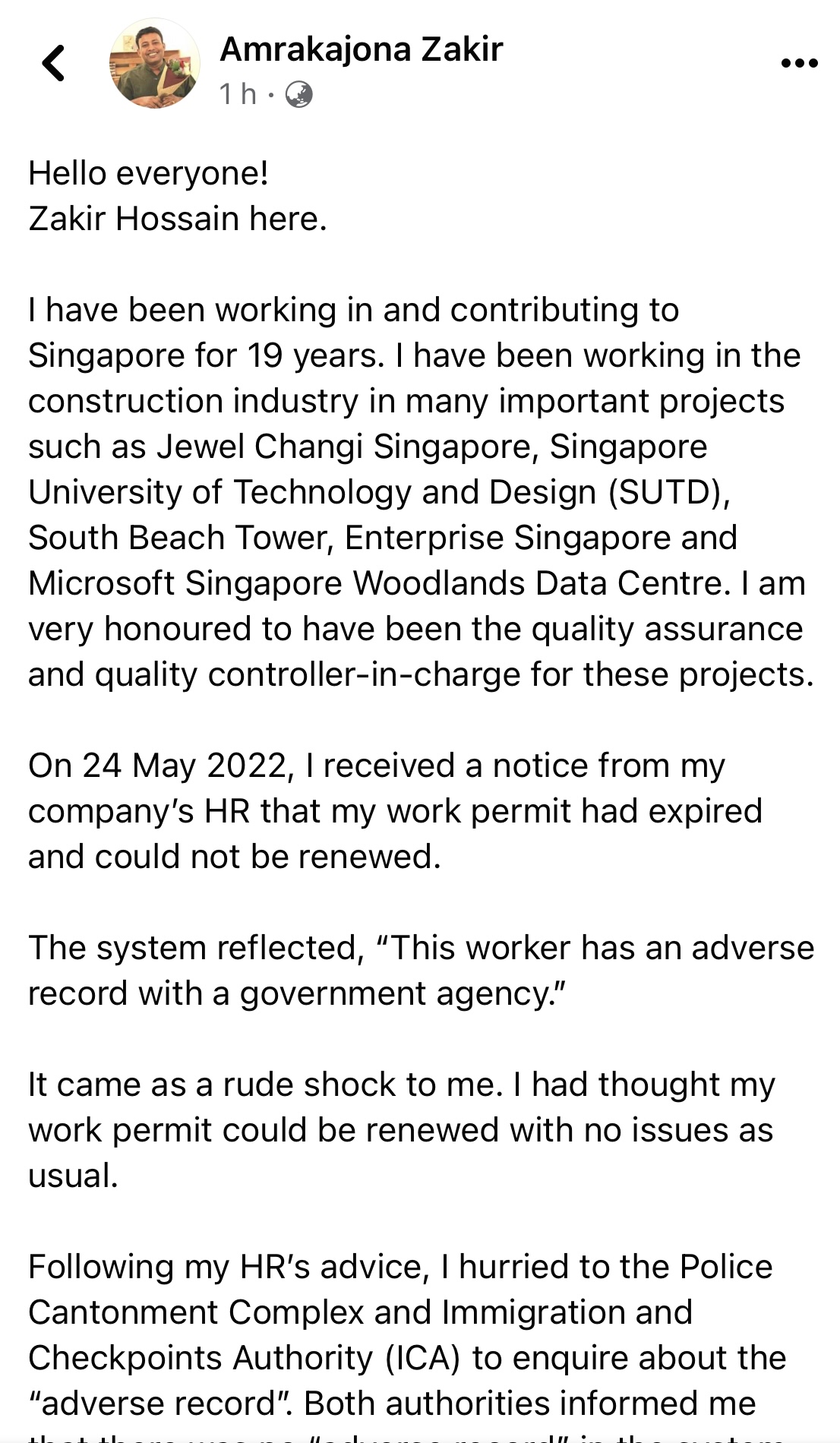

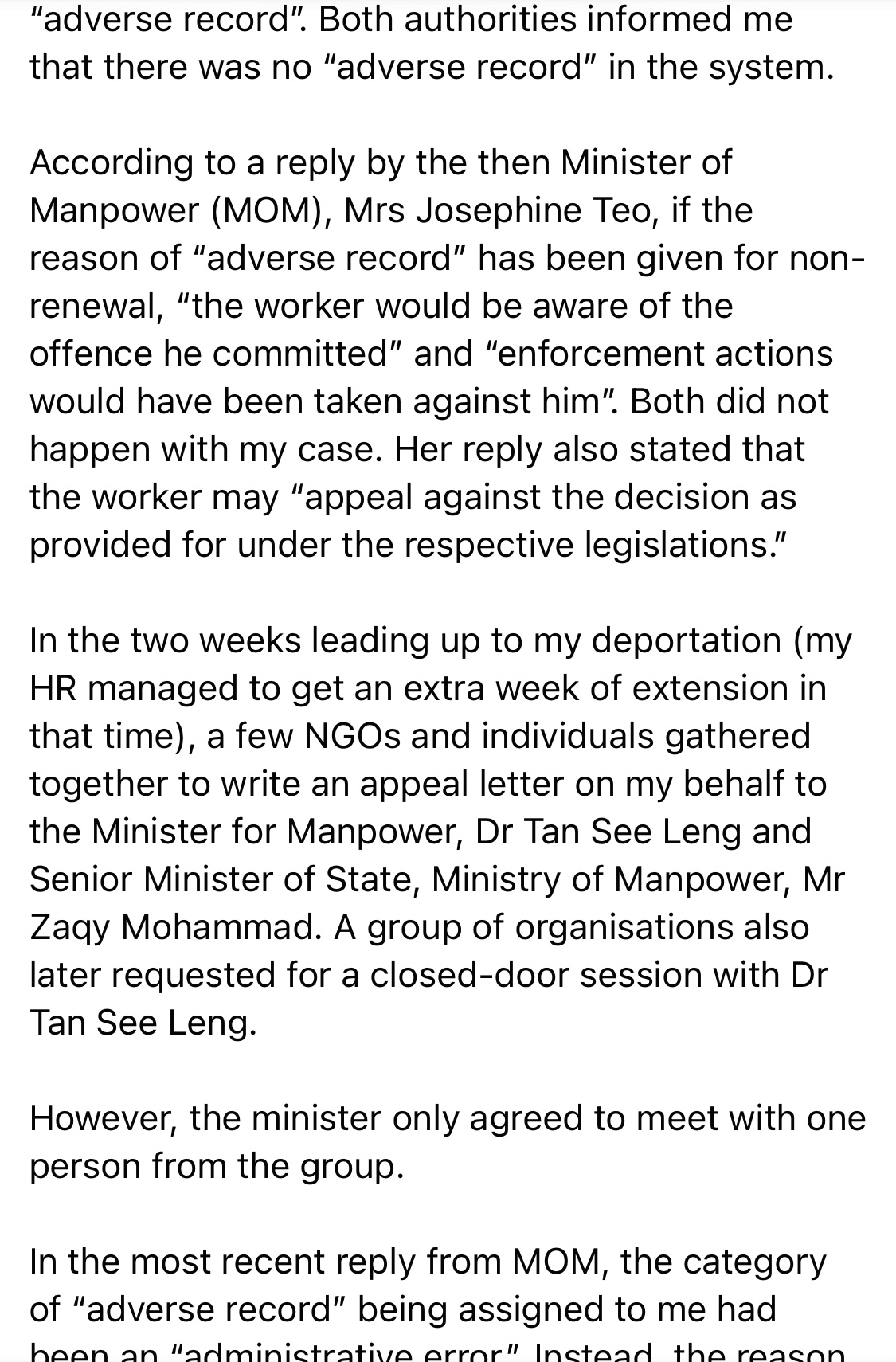

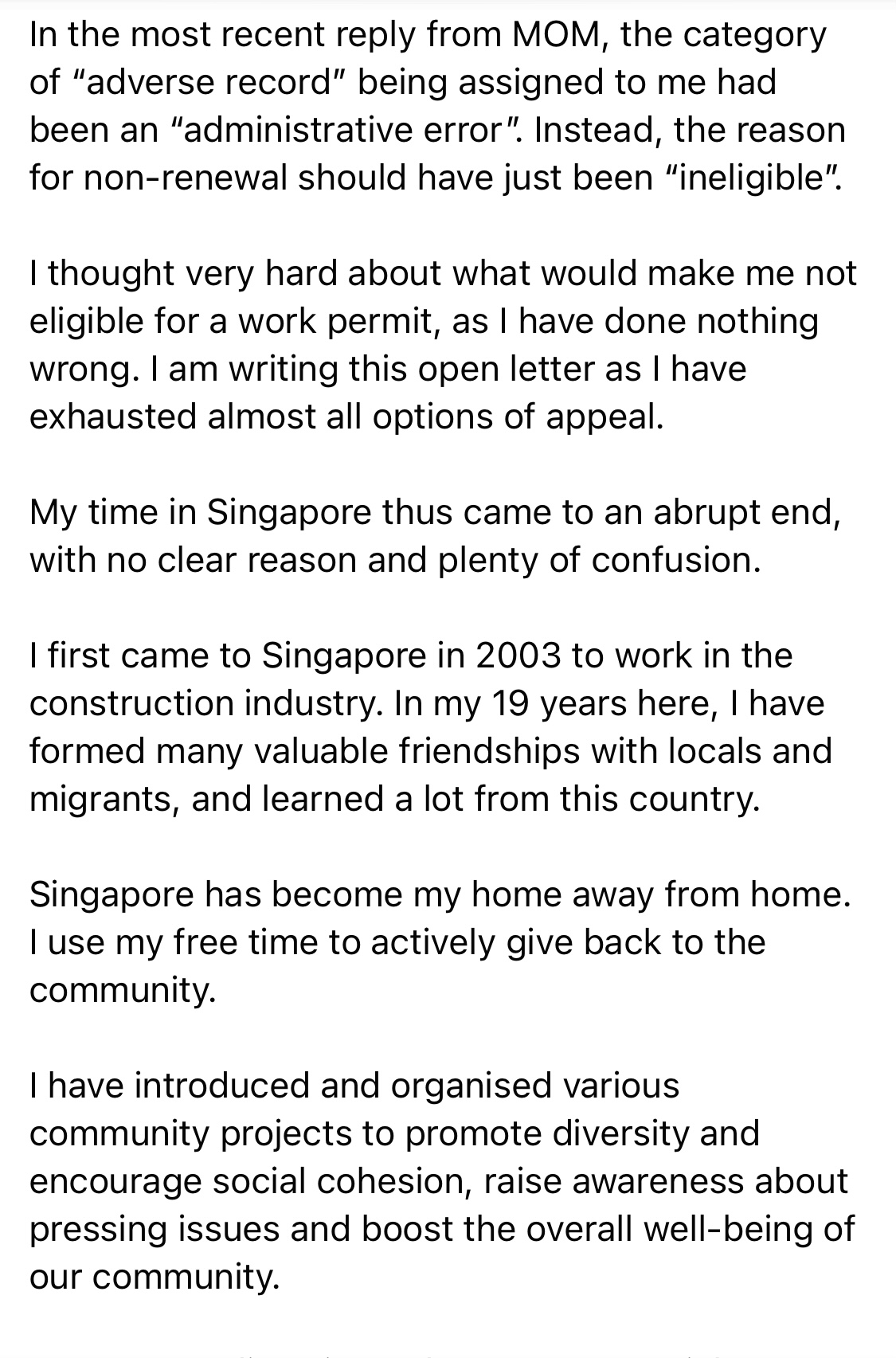

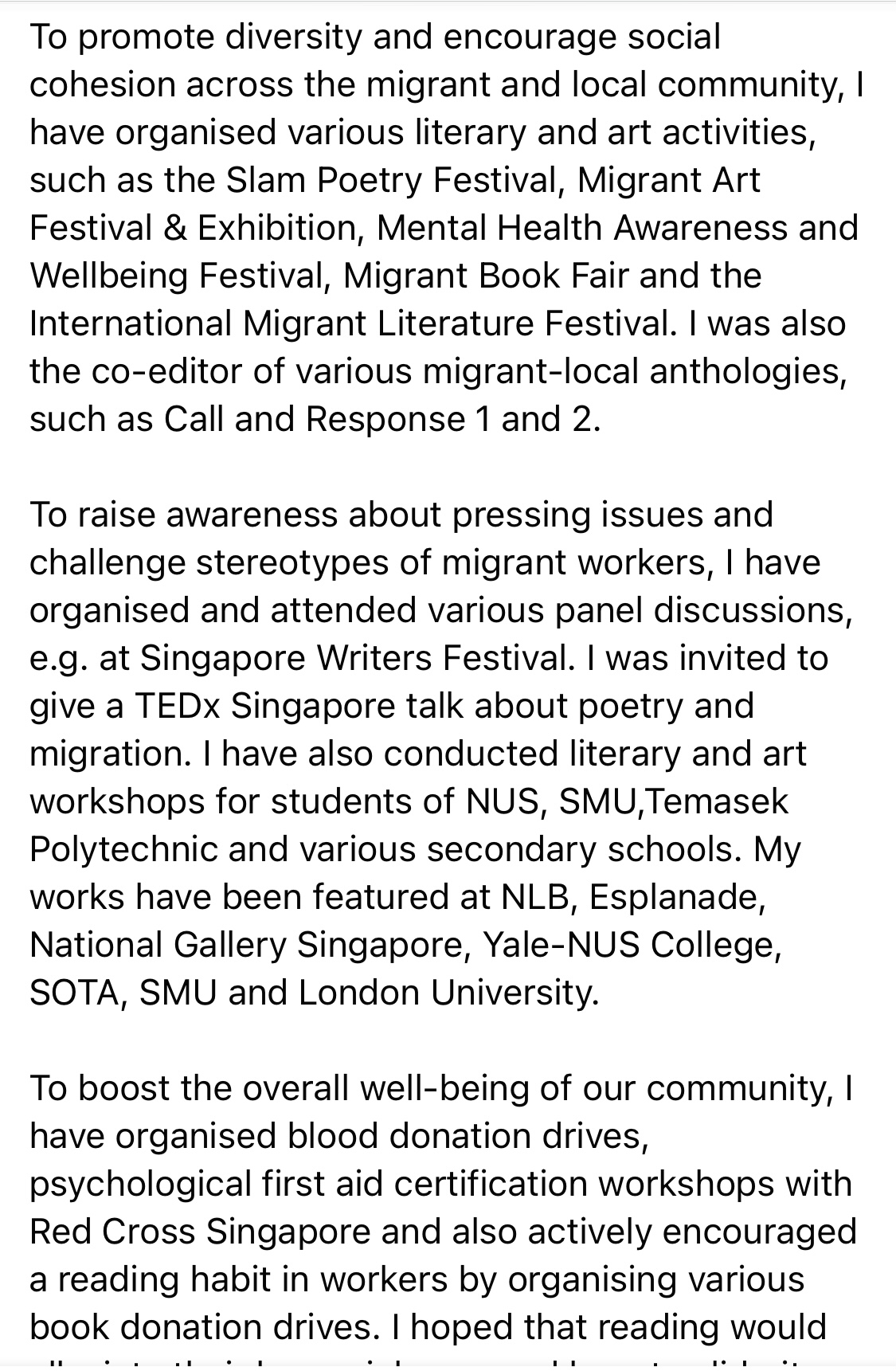

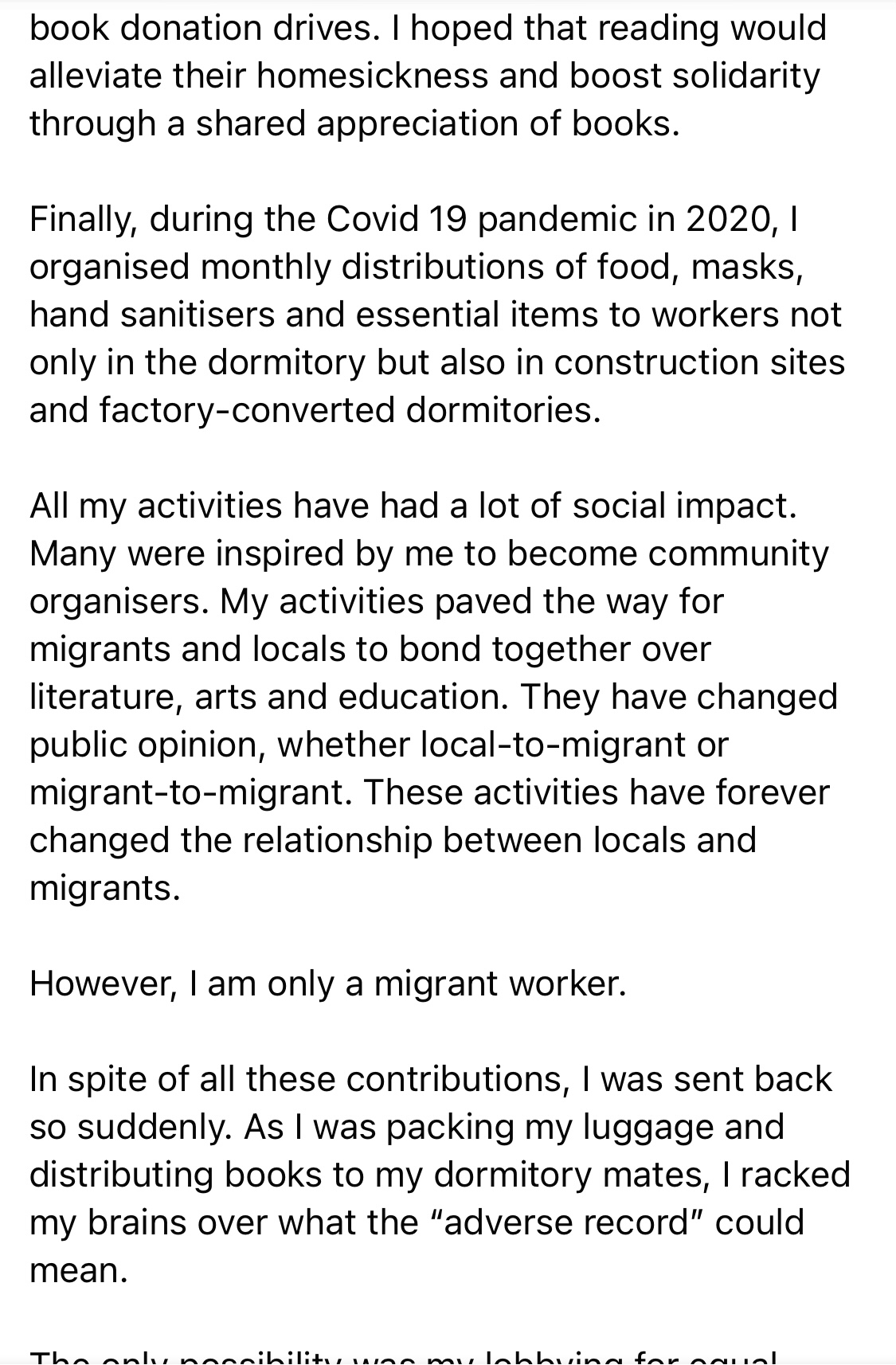

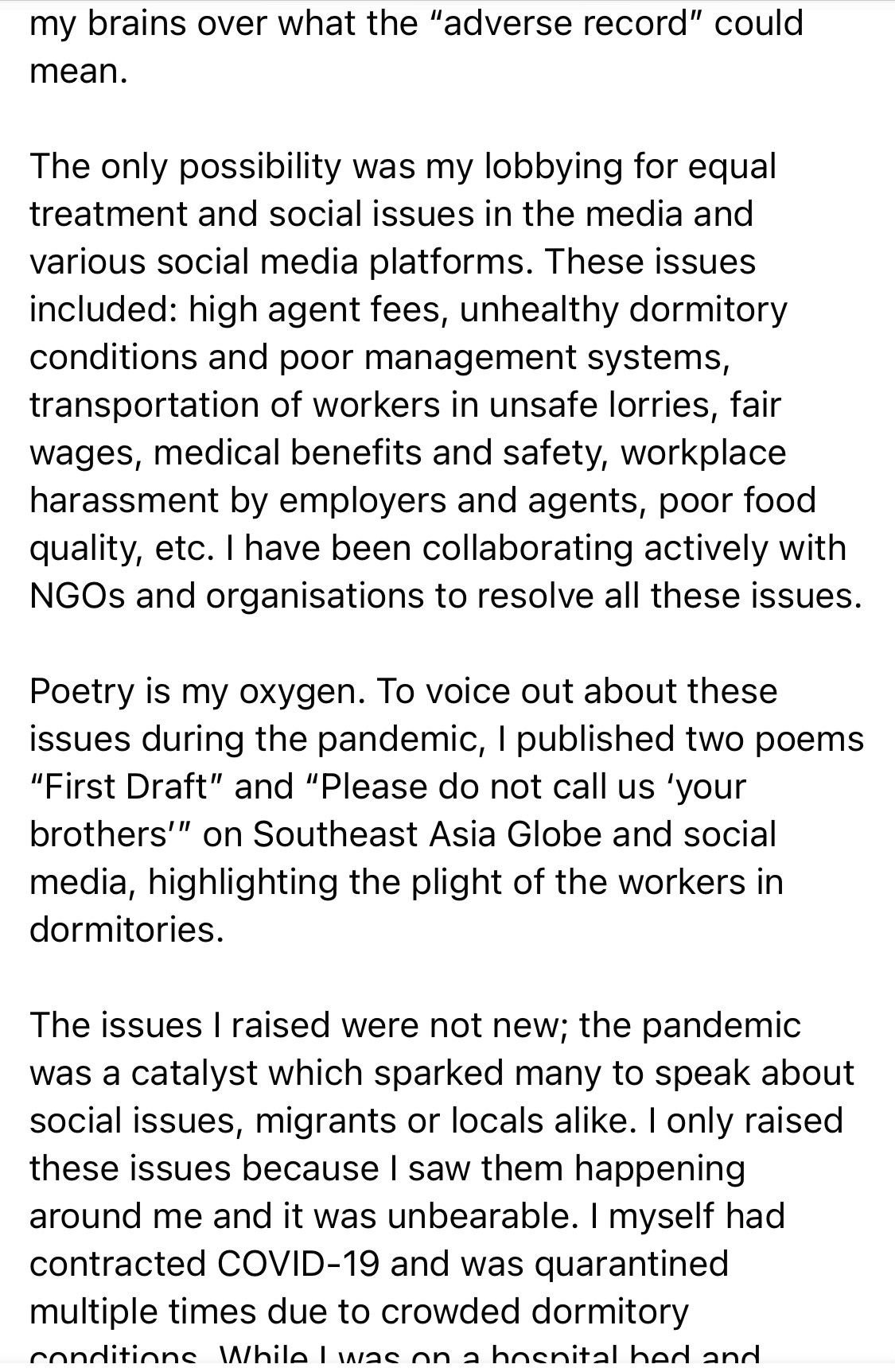

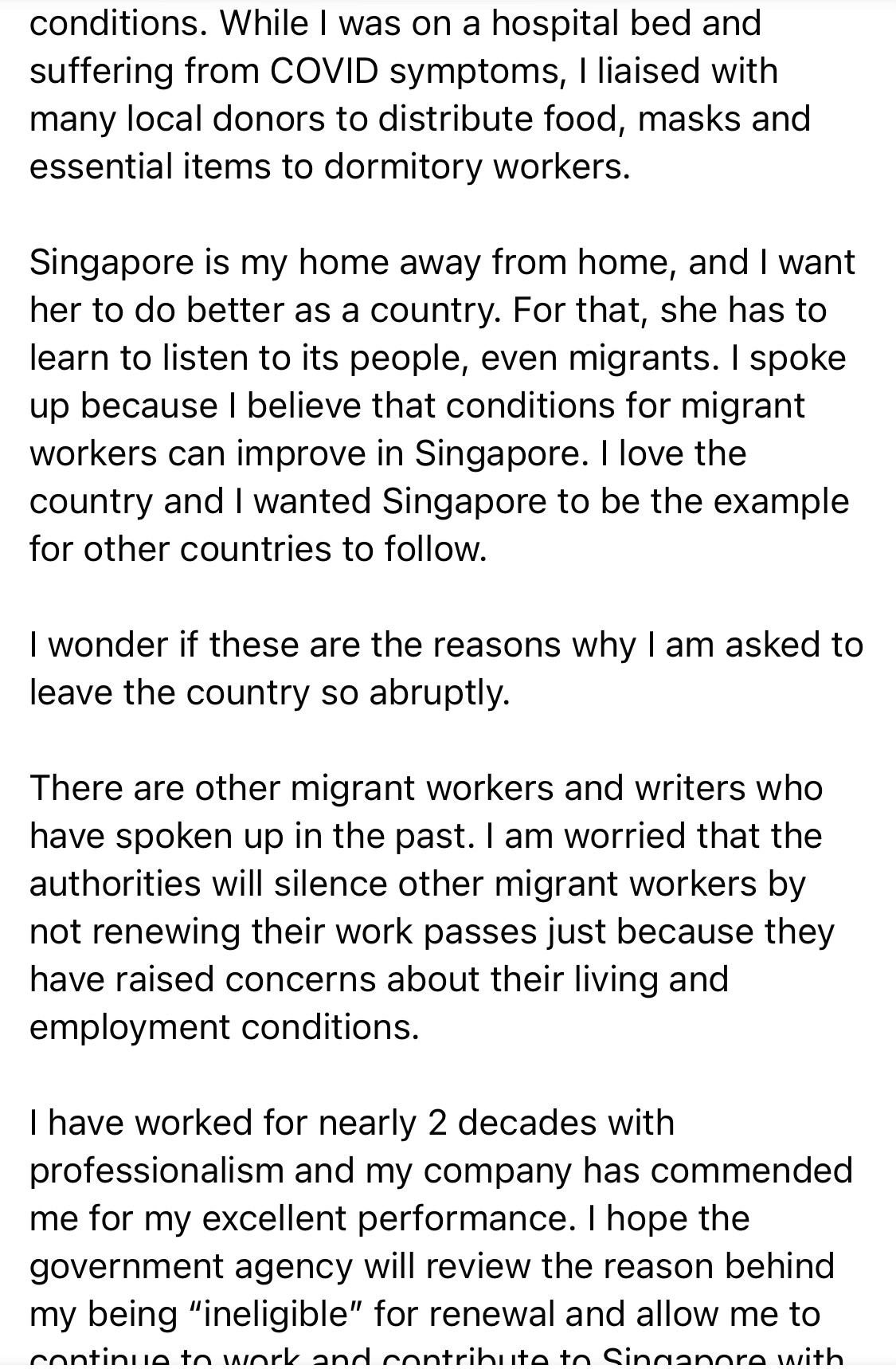

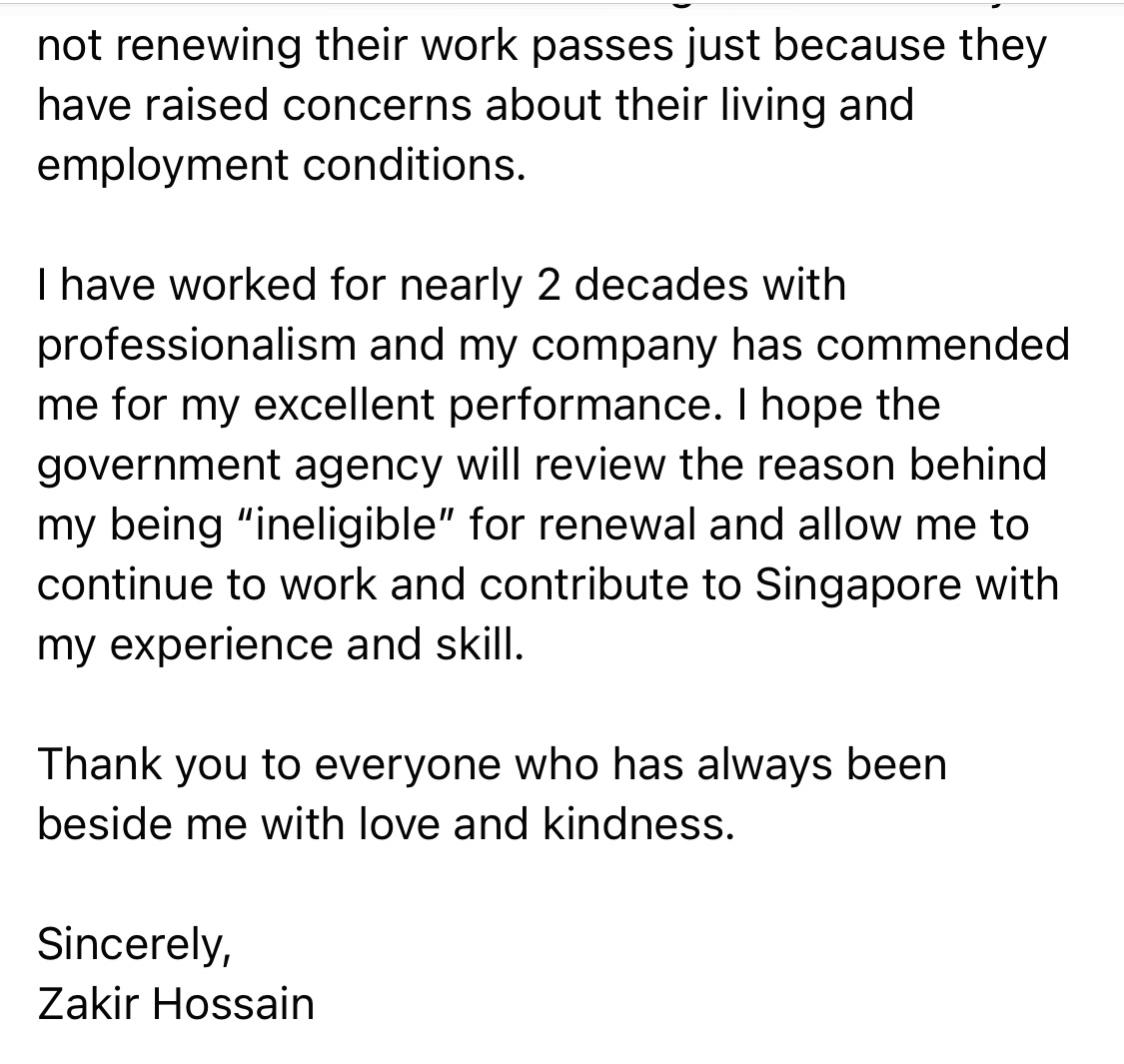

What MOM says
Responding to TISG’s media queries, the MOM said it takes into account various factors when assessing an applicant’s suitability to work in Singapore and for work passes to be renewed. The ministry said that, by Mr Zakir’s own account, Singapore has allowed him to work here for 19 years.
“Through his time in Singapore, he has written often about migrant workers here. We renewed his work pass many times despite his activism and writings,” said MOM.
“We draw the line, however, when public posts are misleading, false or deliberately provocative.”
The MOM’s full statement:
The Ministry of Manpower (MOM) takes into account various factors to assess an applicant’s suitability to work in Singapore and for work passes to be renewed. Non-residents do not have an automatic right to work in Singapore.
Mr Zakir’s work pass was determined by the Controller of Work Passes to be ineligible for renewal. Mr Zakir appealed for reconsideration while his employer did not appeal. The appeal was considered and we informed Mr Zakir that it was unsuccessful.
By Mr Zakir’s own account, Singapore has allowed him to work here for a very long time – 19 years. Through his time in Singapore, he has written often about migrant workers here. We renewed his work pass many times despite his activism and writings. We draw the line, however, when public posts are misleading, false or deliberately provocative.
For example, in a post on 16 Oct 2021 (under the profile of “Amrakajona Zakir”), Mr Zakir called migrant workers in Singapore “work slaves”, and our dormitories “work camps”. He also alleged that soldiers and armoured vehicles had surrounded a dormitory, Westlite Tukang.
This was a false characterisation. Because of the situation at that time in the dormitory, Police personnel were on standby nearby as a precautionary measure. They never surrounded the dormitory or engaged workers there. Rather, MOM officers and dormitory personnel engaged the workers to address their concerns. There were no soldiers, let alone armoured vehicles, around. Though Mr Zakir had signed off his post as from the “workers of Westlite Tukang”, he himself had never lived there.
Mr Zakir’s false statements could have incited migrant workers at Westlite Tukang and elswhere, inflamed their emotions and possibly caused incidents of public disorder. Fortunately, the real residents of Westlite Tukang saw that MOM, the employer and the dorm operation were serious about addressing their problems and calmed down.
The Ministry of Manpower, together with other Government agencies in the Government, has taken considerable pains to safeguard the wellbeing of our migrant workers during the COVID19 pandemic. We reduced the risk of transmission among migrant workers, made effective vaccinations available to all of them at the same time as Singaporeans, provided them comprehensive and timely healthcare support, and ensured they were paid even during the Circuit Breaker period when they could not work. As a result of our efforts and the cooperation of our migrant workers, we have kept COVID-19 mortality numbers among migrant workers residing in dormitories low – only two deaths in 2020 before vaccinations were available, and none after.
The ability of a foreigner to work in Singapore is not an entitlement. Mr Zakir has been permitted to work in Singapore for a long time, though he was a long-time activist. His work pass has since expired. He cannot prolong his stay when he no longer has a job in Singapore. He has over-stayed his welcome. /TISG

